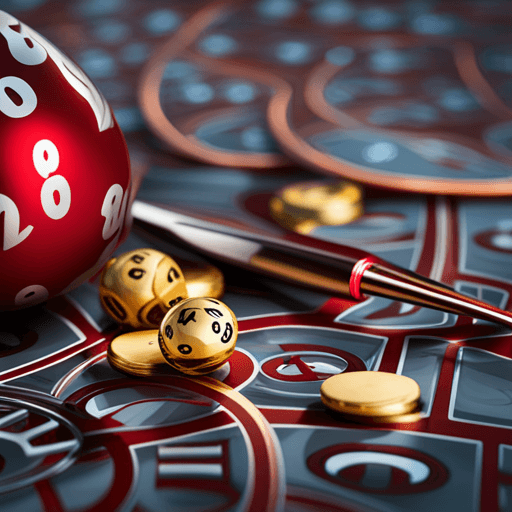Playing the lottery can be an exciting gamble, with the promise of life-changing wealth only a ticket away. But what are the real odds of striking it rich? This article will delve into the mathematics behind the lottery, helping you understand your chances of winning and providing some tips on how to potentially increase your odds.
The Allure of the Lottery
The lottery, a popular form of gambling, raises funds for state budgets, schools, and addiction programs while simultaneously stoking the dreams of players hoping to win big. With Americans spending nearly $100 billion on state lotteries annually, the possibility of hitting the jackpot, however slim, continues to captivate many.
Understanding the Odds
In a typical lottery game, players choose a set of numbers from a defined range. If these numbers match the ones drawn by the lottery, the player wins a prize. The order in which the numbers are drawn does not matter. For instance, in a 6/49 game, where players choose six distinct numbers from a range of 1-49, the chances of winning the jackpot are 1 in 13,983,816, irrespective of the sequence of the numbers.
The odds of winning can also be calculated through a different method. For instance, in a 6/49 game, the first number drawn has a 1 in 49 chance of matching. When the second number is drawn, there are 48 balls left, hence a 1 in 48 chance of a match. This continues until all six numbers have been drawn, resulting in a final calculation of 49 × 48 × 47 × 46 × 45 × 44.
While these odds may seem daunting, it's important to remember that the lottery is a game of chance. Every ticket has the same odds of winning, and every player has an equal chance, albeit minuscule, of hitting the jackpot.
Comparing Lottery Odds to Other Events
To put the odds of winning the lottery into perspective, consider these comparisons:
- According to the National Weather Service, you are about 250 times more likely to be struck by lightning than to win the lottery.
- Data from the Florida Museum shows you are about 80 times more likely to die from a shark attack than to win the lottery.
- The Center for Disease Control and Prevention (CDC) states that you are about 30,000 times more likely to experience a bathroom injury than win a major lottery like Mega Millions.
Despite these statistics, the thrill of potentially winning a fortune keeps players buying tickets.
Improving Your Odds
While the odds of winning the lottery are generally unfavorable, there are strategies that could potentially improve your chances:
1. Buying More Tickets
Purchasing more tickets increases your overall chances of winning. However, this strategy also escalates the risk of losing money, as the cost of multiple tickets could outweigh the improved odds.
2. Choosing Unconventional Numbers
Choosing less popular numbers can potentially increase your chances of winning a larger amount. Many players choose significant dates as their lottery numbers, which means numbers between 1 and 31 are often selected. By choosing numbers outside this range, you may decrease the likelihood of having to share a prize if you win.
3. Playing Smaller Games
Smaller, local games like the SuperLotto Plus or scratch-offs generally offer better odds of winning, even though the prizes are smaller. Websites like scratchoffodds.com provide information about different scratch-off games in each state, including the number of unclaimed prizes.
The Pitfalls of Playing the Lottery
While it's tempting to view the lottery as a potential gold mine, it's important to remember that playing the lottery is a form of gambling. The cost of tickets can add up quickly, and the chances of winning big are extremely low. Therefore, it's crucial to play responsibly and view the lottery as a form of entertainment rather than an investment strategy.
The Lottery and Mathematics
Lottery mathematics is based primarily on combinatorics, particularly the twelvefold way and combinations without replacement. The odds of winning can be calculated using the combination function, which quantifies the number of ways a given outcome can occur regardless of the order of numbers.
The Role of Powerballs and Bonus Balls
Many lotteries feature a Powerball or "bonus ball." If the Powerball is drawn from a different pool of numbers than the main lottery, the odds are multiplied by the number of Powerballs.
In Conclusion
Winning the lottery is largely a matter of luck, and the odds are heavily stacked against players. Nonetheless, understanding the mathematics behind the game and employing strategies to improve your chances can make the lottery a more exciting and engaging experience.
Remember, it's always important to play responsibly. While the allure of becoming an instant millionaire is hard to resist, the reality is that your chances of winning are extremely slim. Enjoy the game, but remember to keep your expectations in check.

